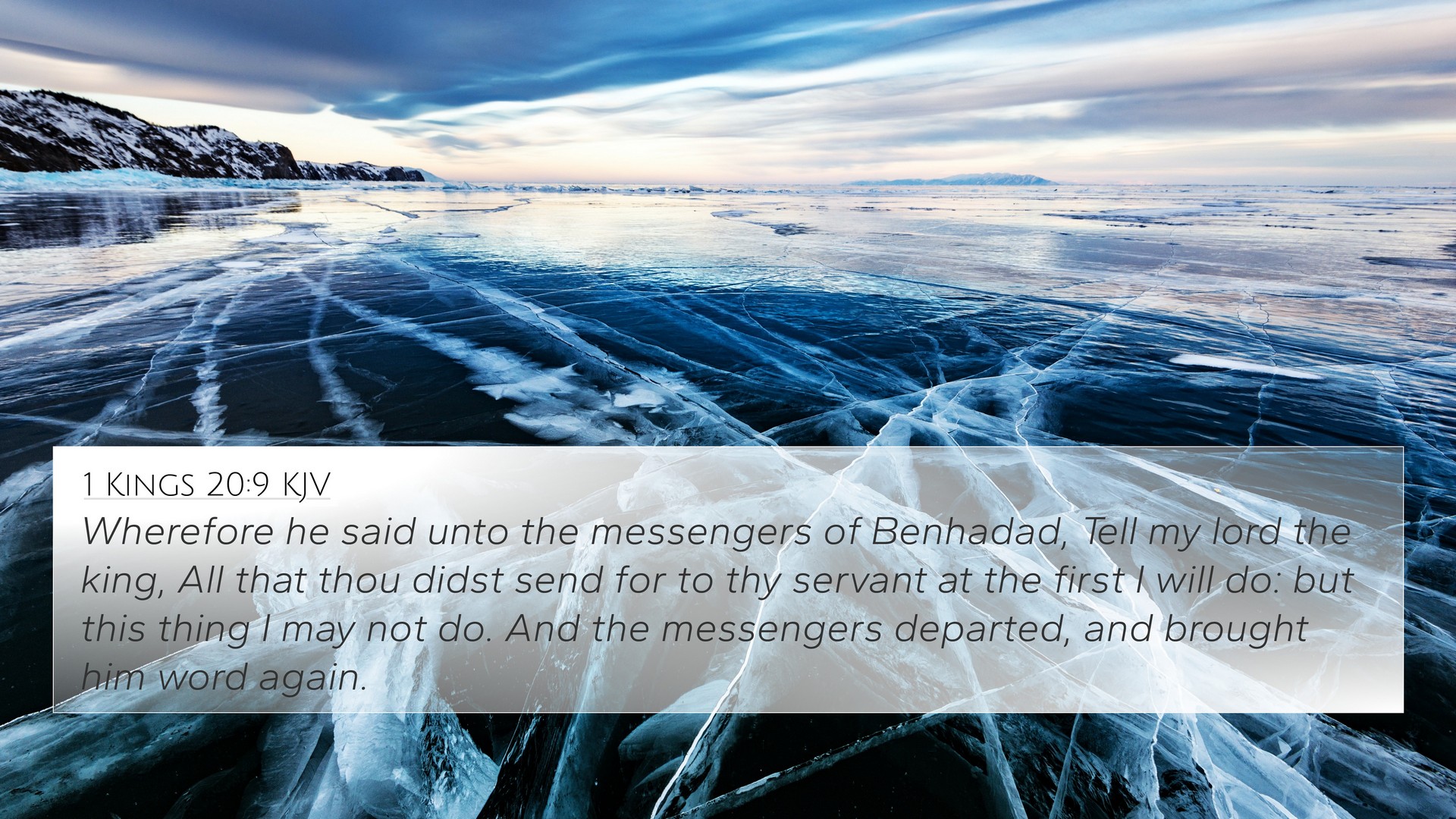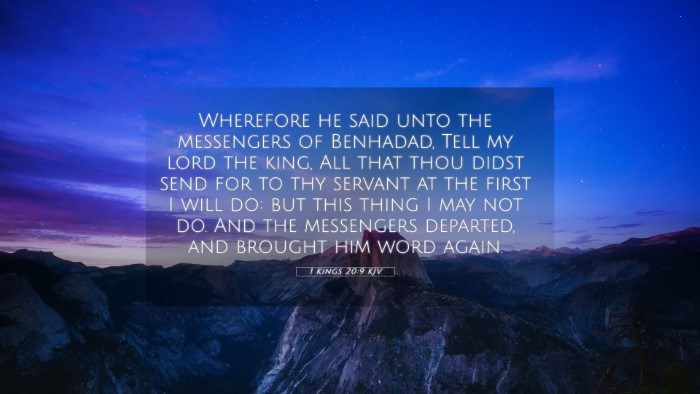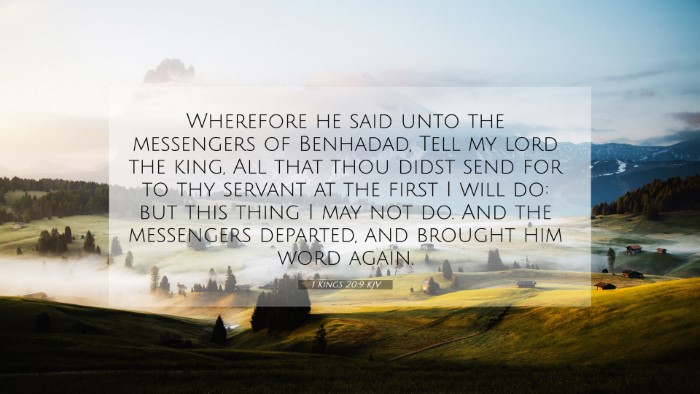Understanding 1 Kings 20:9
Verse: "So he said to the messengers of Ben-Hadad, 'Tell my lord the king, “All that you sent for to your servant I will do, but this thing I cannot do.”’ And the messengers departed and brought back word to him."
Summary of Meaning
This verse represents a critical moment between King Ahab of Israel and Ben-Hadad, king of Aram. Ahab’s response indicates a diplomatic yet firm stance in the face of pressure from a more powerful foe. He acknowledges the requests made by Ben-Hadad but sets a limit, showing both respect for authority and the boundaries of his own capabilities.
Insights from Public Domain Commentaries
- Matthew Henry: Henry emphasizes the character of Ahab, noting that he shows willingness to negotiate but remains clear that some demands go beyond his ability to fulfill. This reflects a balance of humility and assertiveness.
- Albert Barnes: Barnes points out that Ahab's response illustrates the tension in diplomatic relations during the time. Ahab’s acknowledgment of the power imbalance shows wisdom, yet it also presages the eventual conflict.
- Adam Clarke: Clarke focuses on the consequences of Ahab's decision. He elucidates how Ahab's attempt at appeasement may lead to adverse outcomes, suggesting that it's important for leaders to discern when to comply and when to resist.
Bible Verse Cross-References
This verse can be cross-referenced with the following scriptures that deepen the understanding of Ahab’s position and the broader narrative of conflict:
- 1 Kings 20:1: The context of Ben-Hadad's demands and the building tension between Israel and Aram.
- 1 Kings 21:1-4: Ahab's pattern of responding to powerful adversaries.
- 2 Chronicles 18:1-3: The alliance between Israel and Judah, reflecting Ahab's broader political strategy.
- Proverbs 15:1: "A gentle answer turns away wrath," which highlights the need for diplomacy, resonant with Ahab's approach.
- Isaiah 36:16-20: The challenge from Sennacherib echoing the same themes of delegation and negotiating strength.
- Matthew 10:16: "Behold, I am sending you out as sheep in the midst of wolves," which reflects the vulnerability leaders may face.
- Psalm 118:6: The reassurance found in trusting the Lord when facing powerful adversaries.
- Jeremiah 17:5-7: Trusting in man versus trusting in God, which pertains to Ahab's reliance on foreign powers.
Thematic Bible Verse Connections
This passage intricately connects with several themes in scripture, such as:
- Power Dynamics: The struggle between weaker and stronger nations.
- Diplomacy and Conflict Resolution: Insight into how leaders handle threats and negotiations.
- Faith and Dependence on God: Reflecting on whom to trust in difficult times.
- Divine Sovereignty: God's overarching control in the affairs of nations and leaders.
Comparative Bible Verse Analysis
1 Kings 20:9 can be further analyzed by comparing similar scenarios in both the Old and New Testaments. Notably:
- Ahab's Leadership (1 Kings 20) vs. Jesus' Leadership (Mark 10:42-45): Ahab's struggle reflects His leadership style contrasted with the servant leadership exemplified by Christ.
- Diplomatic Failures (1 Kings 20) vs. Successes (Acts 15:1-29): Where Ahab falters, the Jerusalem Council demonstrates successful conflict resolution through dialogue and mutual respect.
Conclusion
In studying 1 Kings 20:9, we see a reflection of the complexities leaders face in navigating relationships with those in power. Through a close examination of this verse alongside historical connections, cross-references, and comparative analyses, we gain a deeper understanding of its significance in biblical history and its lessons for contemporary leadership.


